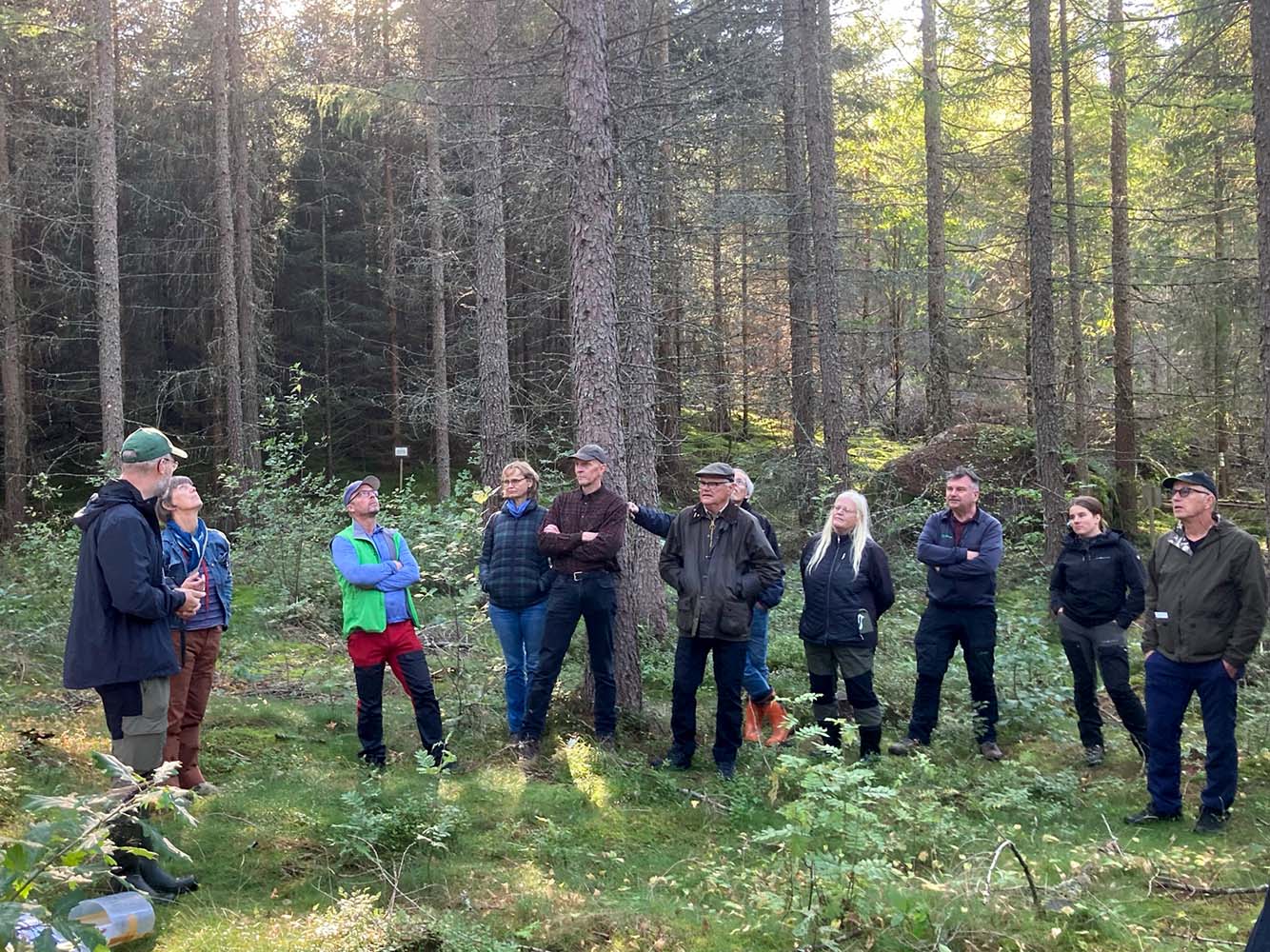
Almost 60 forest owners participated in the event as a part of the project “Climate adapted forestry”. The theme of the excursion was focused on tree species selection in a changing climate as well as windthrow mechanisms and mitigation of risk with silvicultural tools. During the event participants were guided through Asa's forest stands, such as the 29-year-old stand of Hybrid larch (Larix x marschlinsii) as seen in the photo above.
The event was held in cooperation with Linneaus University and Vuxenskolan.